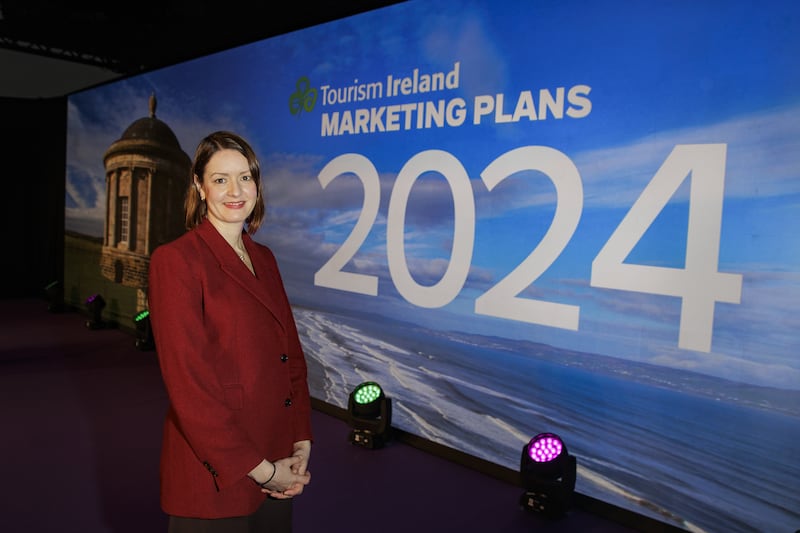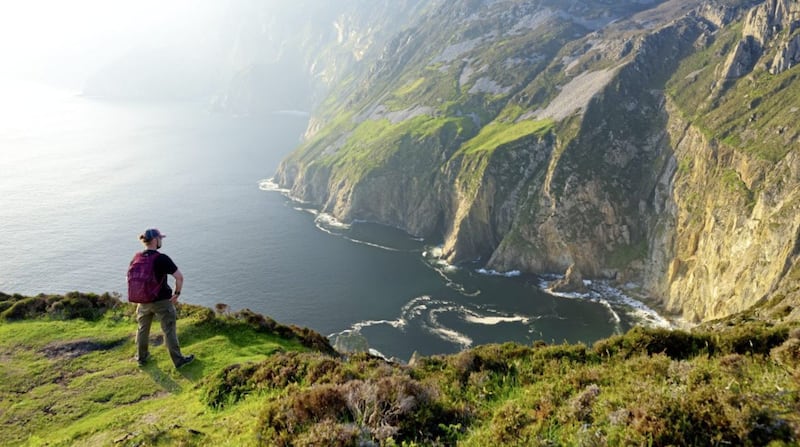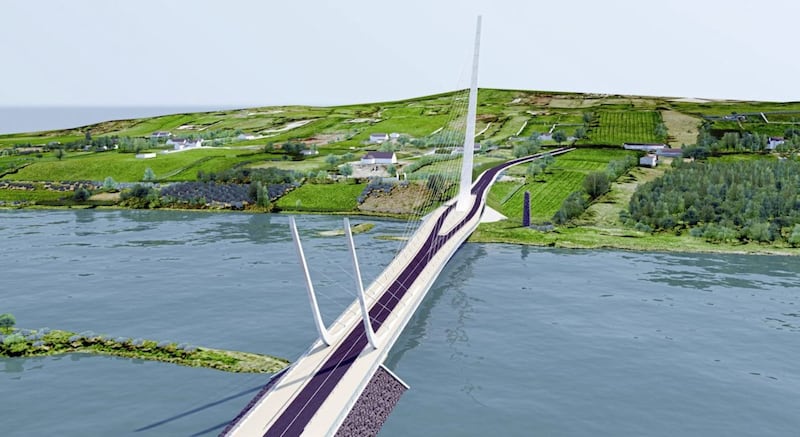One of the characters in the ‘Nonsense Novels’ of Stephen Leacock, the Canadian humourist, was Lord Ronald. On one occasion “he said nothing; flung himself from the room, flung himself upon his horse and rode madly off in all directions”.
Unfortunately that looks very like what Stormont executive ministers are doing. Caoimhe Archibald has now announced her budget but there’s no programme of government, so which or what areas, apart from the disaster area of health, take precedence?
The one bright spot looks like Economy where Conor Murphy has at least set out clear priorities and objectives. His most recent announcement on Tuesday at Tourism NI’s annual conference is particularly encouraging, especially since it doesn’t entail vast expenditure and is therefore most likely to happen.
Tourism is one of the 12 ‘areas for north-south cooperation and implementation’ set out in the Good Friday Agreement. These areas were to be overseen and developed by the North-South Ministerial Council.
On foot of the GFA and NSMC, Tourism Ireland was established in 1998 to promote and implement tourism on the island of Ireland, a huge source of national income. It was to be funded jointly by Fáilte Ireland, responsible for the south, and Tourism NI, for the north, in a ratio of 2:1, with Dublin footing the major cost.
Unionists were nervous about all this, as they were about the whole north-south apparatus. The DUP, being opposed to the Good Friday Agreement, weren’t involved in any of the original negotiations and never liked any of this arrangement. They called it ‘north-southery’.

When they became the main unionist party, they did their best to stymie any progress at the NSMC and minimise Stormont’s involvement with Tourism Ireland.
The DUP’s stewardship – you couldn’t call it management – of the Economy brief at Stormont has been hopeless; it produced stagnation. Their hole-in-a-corner, dog-in-the-manger, pig-in-a-poke, worm’s-eye view of the north guaranteed no progress in prosperity here.
The vehicle for attracting Foreign Direct Investment, InvestNI, was heavily skewed towards east of the Bann and east and south Belfast. It fell apart in 2021.
Conor Murphy has already indicated that he intends to spread investment and development more broadly across the north and, as he pointed out on Tuesday, one attraction of tourism is that 70% of its jobs are outside Belfast.

The over-arching aim is to maximise marketing all-Ireland tourism. To that end he plans to extend the Wild Atlantic Way through Derry and across the Causeway coast.
It’s a no-brainer and without the DUP should have been on offer from the word go. It has brought over €3 billion to the south. The BBC did a vox pop on Tuesday and not a single person thought it was a bad idea. The great advantage is that the signage and promotion will pay for itself within a couple of years.
Similarly, adding Armagh and Downpatrick into ‘Ireland’s Ancient East’ and Fermanagh into ‘Ireland’s Hidden Heartlands’ themes will bring money to those areas. Added to that, the Irish government’s €3 million for the Narrow Water bridge makes for a coherent tourist plan on the east coast.

What a difference to have planning on a rational basis to produce financial benefits for people living in border districts instead of pathetically trying to build an artificial rampart around “our wee country”.
Murphy also had a dig at the stupid electronic travel authorisation scheme the British are introducing, which will be a deterrent to tourists and tour companies even though no-one coming north will be stopped.
It’s real purpose is to check migrants travelling to Britain from here; stupid because in fact the flow is in the opposite direction. On Tuesday the justice minister in the south, Helen McEntee, told the Oireachtas that over 80% of asylum seekers in the south had come through the north.
What a difference to have planning on a rational basis to produce financial benefits for people living in border districts instead of pathetically trying to build an artificial rampart around ‘our wee country’
Unlike Stephen Leacock’s Lord Ronald, Conor Murphy is heading off in one direction and also, unlike other executive ministers, he is likely to arrive at his destination because he’s making no great financial demands on the Department of Finance.
The added bonus is that expanding tourism increases productivity and prosperity.



